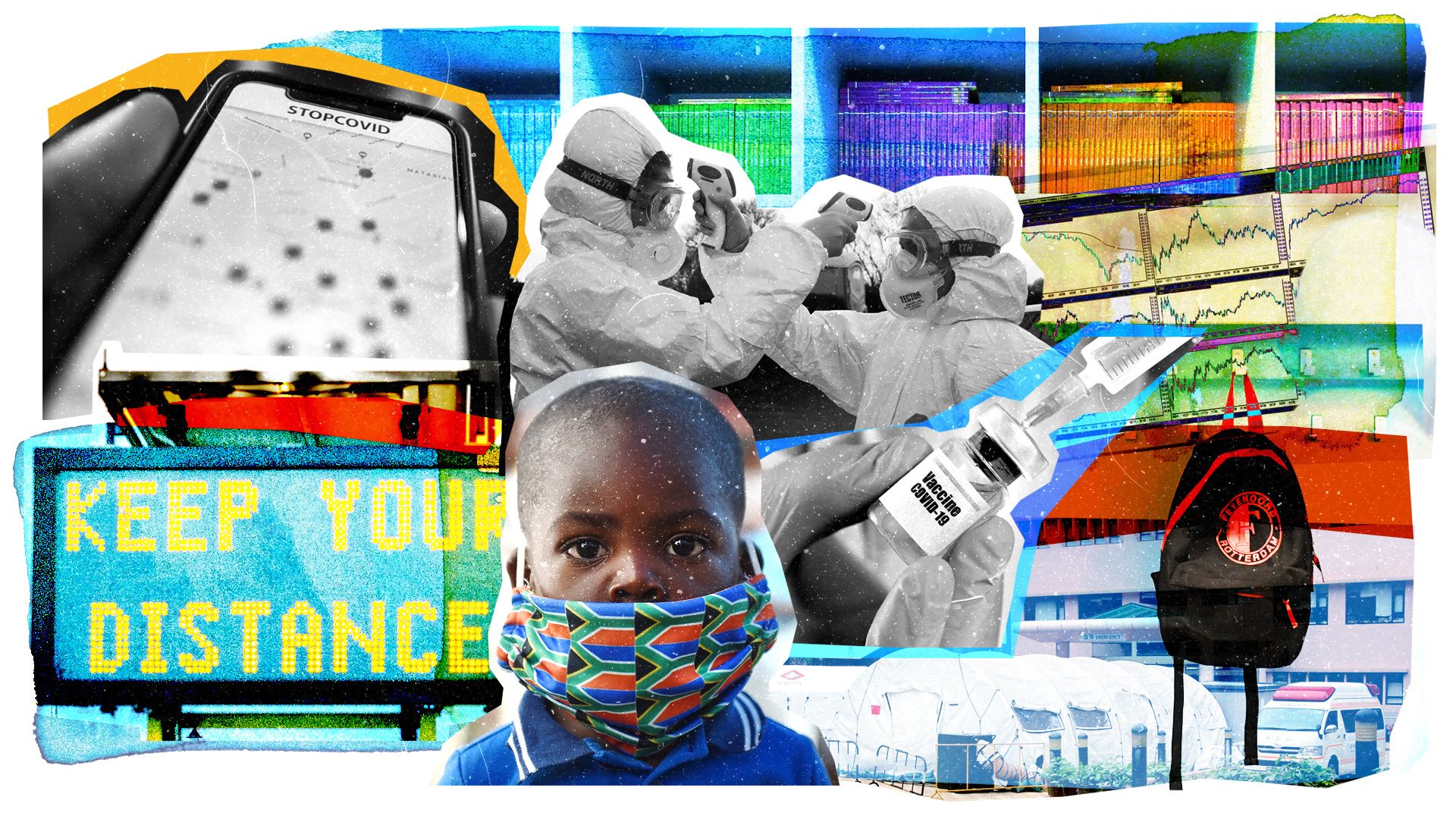Crisis response and recovery: Reimagining while rebuilding
The COVID-19 pandemic has triggered profound political, economic, and social shocks. For some countries, the worst of the crisis is already behind them, while others continue to grapple with severe health and economic challenges — and will still do so well into 2021. But as the world starts to rebuild, it is critical to focus not just on the speed but also on the quality of the recovery.
The recovery presents a rare opportunity for the world to confront climate change, create an inclusive internet, and safeguard critical cyber infrastructure. These goals are ambitious, especially in a "G-Zero" world in which the global order built after World War II — including the United Nations itself — is under strain and a time when many people feel that governments — in their towns, cities, and countries — are not up to the task. To achieve an inclusive, sustainable, and secure recovery, new alliances must be forged, involving governments, businesses, nonprofits, and individuals. The old solutions won't work.
And the old toolkit won't be enough either: 21st century challenges can't be solved with 20th century methods. That means new tools must be embraced, from digital education and training to carbon-negative technologies and more. Technology will play a key role. The United Nations, technology companies, and governments are collaborating on new ways to educate students, safeguard the internet, and measure changes in the environment. On the 75th anniversary of the UN, governments, companies, and NGOs will come together to discuss how to build a stronger, more resilient world.
What's the UN doing about it?
Through the World Health Organization, the UN is at the forefront of coordinating government responses to the pandemic. The agency has been a clearinghouse for the latest research into the virus and has provided important guidance on the best responses, such as safe practices for reopening schools. As focus turns towards recovery, the UN will continue to play a leading role in helping governments, industry, nonprofits, and international financial institutions work together to rebuild and strengthen resilience ahead of the next crisis. The 2030 Agenda for Sustainable Development is the centerpiece of the UN's rebuilding agenda. For the UN, the agenda — which aims to eradicate poverty, promote prosperity, and protect the planet — is even more urgent given the pandemic-driven disruptions.
How are others trying to help?
Technology will play an important role in building a safer, more inclusive, and greener world. In the immediate term, leaders need to find ways to safely return to some degree of normalcy during the pandemic. More than one billion students across the world face school closures, and we must ensure that young people don't fall behind. To that end, the UN, companies, civil society, and academia have developed new tools to ensure students can keep up, including a program called Learning Passport which allows students to keep learning despite the disruptions caused by crisis and displacement.
The rapid shift to remote work will likely herald a broader move toward work-from-home or hybrid workspaces, which means increased demands on technology infrastructure. Decision-makers need access to reliable information about difficult-to-predict future threats, including climate change, pandemics, or displacements of people due to war or disasters. That's why some technology companies are partnering with the UN, national governments, and NGOs to develop tools to spot emerging threats. In addition, as the world begins to rebuild, governments need to be responsive to the needs of their people. The proliferation of cyber attacks and misinformation threatens the democratic political process, making it even more important for government and industry to collaborate to defend the vitality and health of democracies.
What's needed next?
Governments and businesses need to collaborate more to expand and strengthen 5G infrastructure to support remote work and school and to ensure that everyone has access to speedy, reliable internet. Moreover, given the economic changes caused by the pandemic, new investment must ensure that people have access to education and training to learn new skills to compete in the workforce. Companies also need to take the initiative to reduce carbon emissions, and a number of major companies have joined together to form the Transform to Net Zero coalition to do exactly that.
